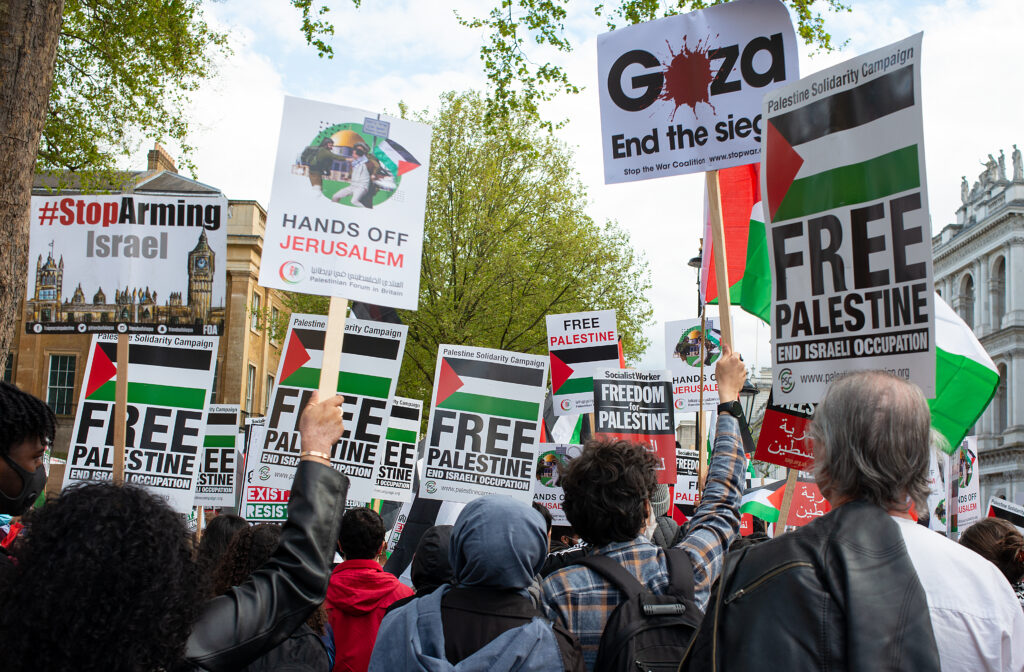CAGE International Challenges Hamas Proscription Citing Suppression of Free Speech
CAGE International has submitted a legal challenge to the UK Home Secretary, urging the removal of Hamas from the UK terror list on the basis that its proscription infringes on free speech rights. The application argues that the ban is enforced in a discriminatory manner, contravening the protections for freedom of expression and equality set out in Articles 10 and 14 of the European Convention on Human Rights.

Challenging the Suppression of Political Speech
This submission is unprecedented in its focus on what it describes as the systematic suppression of political speech, especially within Britain’s Muslim communities. It points to the use of section 12 of the Terrorism Act 2000 as a tool to curb pro-Palestinian advocacy. The law criminalizes various expressions of support for proscribed organizations, from social media posts and public speeches to attending meetings that may be construed as supportive.
Muhammad Rabbani, Managing Director of CAGE International, explained that the current climate has a pronounced chilling effect on open debate regarding support for Palestine. He emphasized that the suppression of pro-Palestinian speech not only harms the individuals targeted but also undermines the fundamental principles of free expression and open political discussion that are essential to a democratic society.
Documented Cases of Suppression
The legal application is supported by 24 anonymized case studies drawn from six different sectors, which include:
- Teachers who have been suspended or dismissed.
- Students burdened with prolonged disciplinary proceedings.
- Medical professionals subject to investigations or suspension over comments made online.
- Activists, academics, and other professionals who have experienced house raids and property seizures.
- Individuals stopped at airports under stringent security measures and arrested under the Terrorism Act, often facing harsh bail conditions.
- Those facing immigration sanctions such as visa cancellations or deportation orders for merely expressing support for the Palestinian struggle.
- Younger individuals, even as young as eight years old, who have been referred to or threatened with referral to Prevent programs for showing solidarity with Palestine.
According to CAGE, these actions reveal a consistent pattern of arrests and harassment, which, even when they do not result in successful prosecutions, inflict long-lasting damage on the affected communities. The evidence presented suggests that this enforcement disproportionately targets Muslims and is often initiated by opportunistic individuals within an increasingly politicized regulatory framework.

A Call for Change in Policy
Rabbani further argued that maintaining the proscription of Hamas undermines freedoms that have long been safeguarded by British law. He warned that the existing measures not only expand authoritarian power under the guise of security but also serve to defend actions seen by many as part of a broader political agenda in the region. Removing Hamas from the terror list, he asserted, would help address both the disproportionate and discriminatory application of these laws and a shifting political landscape.
The application, filed on June 2, now awaits a decision from the Home Secretary, who has 90 days to respond. Should the challenge be upheld, Hamas would be removed from the terror list; if not, there will be an opportunity to appeal the decision through the designated appeals process.
The UK’s Ongoing Proscription of Hamas
The United Kingdom remains unique among many Western nations in maintaining a comprehensive ban on Hamas, despite a growing international recognition of the organization’s role as a political actor and its de facto governance of Gaza. Originally, in March 2001, only the military wing—known as the Izz al-Din al-Qassam Brigades—was designated as a terrorist organization under the Terrorism Act 2000. However, in November 2021, this designation was expanded to include the entire organization. Authorities contended that distinguishing between its military and political elements was artificial, classifying Hamas as a single, multifaceted entity involved in various forms of terrorist activity.
Under this proscription, several activities have been criminalized in the UK, including:
- Affiliating with or claiming membership of Hamas.
- Encouraging others to support the organization.
- Expressing views supportive of Hamas in a manner that might incite further support.
- Organizing or assisting in events aimed at furthering the group’s activities.
- Displaying items in public that raise reasonable suspicions of affiliation with or support for the organization.
Those found guilty of such offenses face severe penalties, including possible imprisonment for up to 14 years or the imposition of hefty fines.

Embracing Faith, One Insight at a Time!
The teachings of the Quran have always guided my path. With a deep passion for Islamic knowledge, I strive to blend the wisdom of tradition with the relevance of today, making the timeless messages of Islam accessible and meaningful for everyone.
Muslim Culture Hub is my platform to share historical insights and thought-provoking articles, exploring both well-known and lesser-discussed aspects of Islamic culture and beliefs. My mission is to create an inclusive online space where everyone can learn, strengthen their faith, and connect with the profound message of Islam.
Join the journey!
May peace be upon you.







